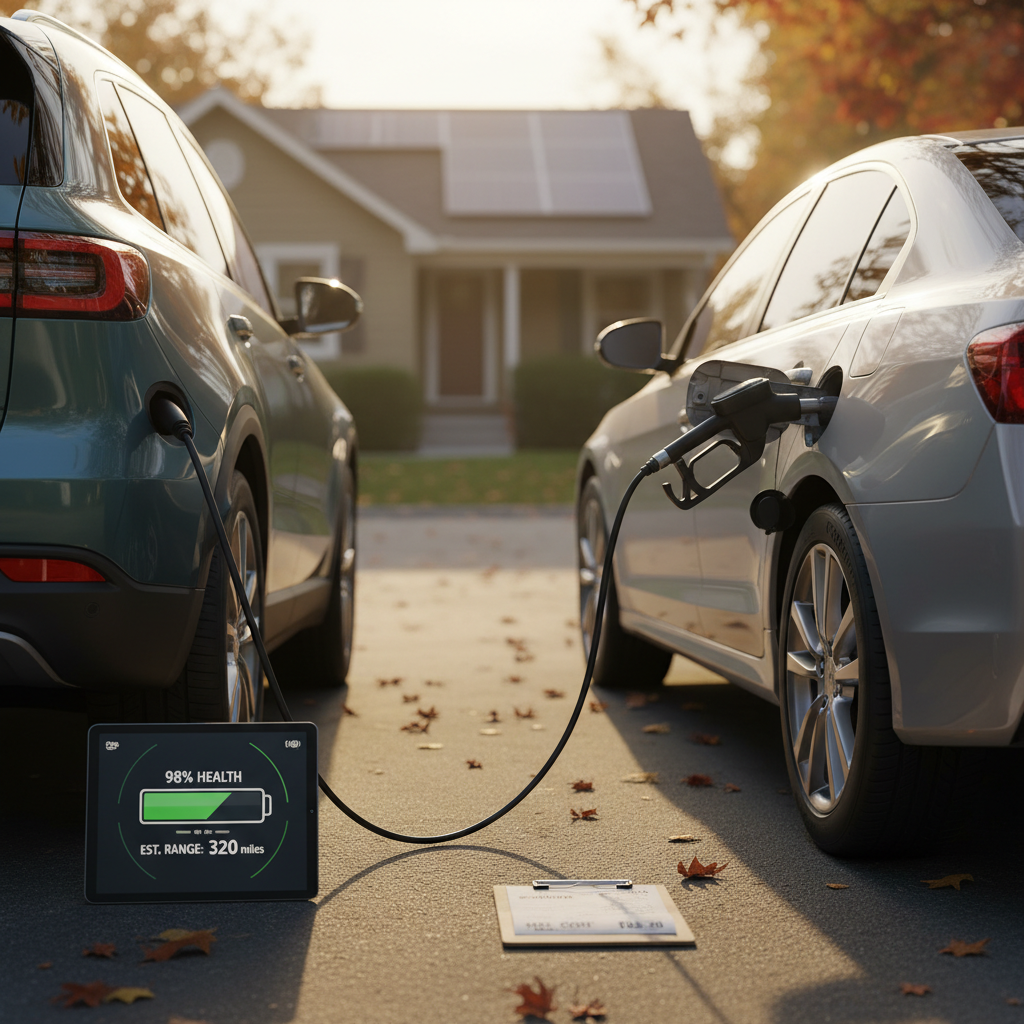If you’ve been hunting for the best electric vehicle lease deals in late 2025, you’ve probably seen two things: eye‑catching low payments in ads, and headlines about EV incentives disappearing. Both are true, and understanding how they fit together is the difference between a smart lease and an expensive mistake.
Context: what changed in 2025
Why EV lease deals look different in late 2025
EV leasing in 2023–2024 was often a case of "don’t ask too many questions, just take the deal." Generous federal credits, plus aggressive manufacturer support, pushed effective payments on some models into absurd territory (in a few states, sub‑$50 or even single‑digit monthly payments on compact EVs). With the main federal credit gone as of fall 2025, the market has snapped back to something closer to normal… but not evenly.
- Some automakers are still heavily subsidizing leases on strategic models to keep EV sales moving (Ford, GM, Hyundai, Kia, Volvo, Polestar, Rivian).
- Others have allowed payments to climb, betting that their brand and product will support higher pricing (Tesla is the headline example).
- Regional incentives and state programs still create hyper‑local bargains, especially in EV‑friendly states like Colorado, California, New Jersey, and New York.
- Used EV prices have fallen sharply relative to new, which means "lease vs buy" math looks very different than it did even two years ago.

EV leasing snapshots for late 2025
Lease deals change fast
Quick look: current standout EV lease deals
To make this useful, let’s ground the conversation in real offers being advertised around November 2025. Exact numbers in your area will vary, but these examples highlight what a strong lease looks like right now.
Representative electric vehicle lease deals in late 2025
These are nationally discussed or widely advertised offers as of November 2025. Treat them as benchmarks, not guarantees, when you shop.
| Model (2025/2026) | Example advertised lease | Term & miles | Cash at signing | Why it’s interesting |
|---|---|---|---|---|
| Kia Niro EV | $209/mo | 24 months, 10k–12k mi/yr | $3,999 | One of the lowest advertised new EV payments; often paired with 0% APR and bonus cash on purchases. |
| Hyundai Ioniq 6 SE | $229/mo | 24 months, 10k mi/yr | $3,999 | Strong payment for a long‑range sedan; Hyundai is still stacking bonus cash on EV leases. |
| Kia EV6 | $309/mo (Light LR RWD) | 24 months, 10k mi/yr | $3,999 | Well‑equipped crossover with aggressive lease cash and long‑term low‑APR purchase options. |
| Ford Mustang Mach‑E Select | $219/mo (CA example) | 24 months, ~10.5k mi/yr | $4,499 | Factory and dealer programs in some states effectively recreate a big tax credit and even throw in a home charger. |
| Polestar 3 | $699/mo | 36 months, 10k mi/yr | $0 | Luxury SUV with $0 due at signing and heavy incentives baked into the payment. |
| Rivian R1T / R1S | $699/mo | 36 months, 10k mi/yr | $8,594 | Adventure‑focused EVs with meaningful captive support; high drive‑off but competitive for the segment. |
| Tesla Model 3 (2026) | From low $300s/mo | 24–36 months, 10k mi/yr | $3,000 | Still competitive on paper, but Tesla has raised lease prices since the tax credit expired, so relative value is weaker than in 2023–24. |
MSRP and terms vary by trim and region; always verify current offers with local dealers or the manufacturer site before signing.
Don’t chase the absolute lowest payment
How to compare EV lease deals like an analyst
Great lease deals are rarely about one magic number. They’re the product of a few levers, some visible, some hidden. If you understand those levers, you can tell whether an advertised special is genuinely good or just good marketing.
Why “effective monthly cost” matters more than the headline payment
The single most useful metric is effective monthly cost, which bakes in your upfront cash. To calculate it, you spread everything you pay, down payment, acquisition fees, doc fees, first month’s payment, over the full term.
- Add up everything you’ll pay at signing, including taxes and fees.
- Multiply the advertised monthly payment by the number of months.
- Add those two numbers together.
- Divide by the number of months in the lease.
Example: comparing two “deals”
Money factor, residual value, and why EVs are weird
Two variables you’ll never see in a TV ad drive most of your payment: the money factor (the interest rate baked into the lease) and the residual value (what the leasing company thinks the car will be worth at the end of the term). EVs are strange animals on both counts.
How money factor and residual shape EV lease deals
You’ll never see these in the ad, but they decide whether a deal is actually good.
Money factor (the hidden interest rate)
This is essentially the APR of your lease, just expressed in a different format.
- Ask for the buy rate, not a marked‑up rate.
- Compare it to normal auto loan APRs.
- Higher money factor = higher payment, all else equal.
Residual value (what your EV will be worth)
Because EV prices have fallen faster than legacy models, many lenders are using conservative residuals.
- Low residuals = you’re paying for more of the car’s value during the lease.
- Manufacturer‑subsidized leases often use artificially high residuals to lower payments.
Watch for excessive dealer add‑ons
Best electric vehicle lease deals by driver type
The “best” EV lease isn’t universal, it’s the one that fits how you drive and how long you want to commit. Here are patterns that make sense for different types of drivers.
Which EV lease deals tend to fit which drivers?
Match your driving pattern to the right kind of offer.
Urban / short‑trip drivers
If you mostly drive around town, short 24‑month leases on efficient models like the Kia Niro EV or Hyundai Kona Electric can be compelling.
- Low advertised payments.
- Short terms reduce technology risk.
- Mileage caps less of an issue.
High‑mileage commuters
For 15k+ miles per year, focus on leases where you can buy extra miles upfront or negotiate a fair per‑mile rate.
- Look at Ioniq 5/6, EV6, Mustang Mach‑E.
- Avoid super‑short 24‑month deals with low mileage caps.
- Sometimes a used EV purchase pencils out better.
Adventure / family road‑trippers
Range, charging speed, and cargo room matter more than the absolute cheapest payment.
- Rivian R1S/R1T, Kia EV9, Hyundai Ioniq 9, Volvo EX90.
- Check DC fast‑charging speed and network coverage.
- Consider whether a 36‑month term aligns with your travel plans.
Normalize range for your real driving
New vs used: when a used EV beats a new lease
Because many first‑generation EVs depreciated quickly, used EV values are often dramatically lower than comparable new ones. That’s bad news for early adopters, but good news for you if you’re willing to shop used instead of chasing the latest lease special.
When a new lease makes more sense
- You want the latest driver‑assist tech and infotainment.
- You’re nervous about long‑term battery degradation and prefer to hand the car back before the warranty ends.
- You need a very predictable monthly payment and plan to swap vehicles every 2–3 years.
- Your employer or business can expense the lease payment.
When buying a used EV can win
- You’re payment‑sensitive and open to a 3–6‑year‑old EV at a large discount.
- You have flexibility to keep the car beyond a typical lease term.
- You want to avoid mileage caps and turn‑in fees.
- You can take advantage of tools like the Recharged Score to verify battery health before you buy.
Recharged’s battery diagnostics and fair‑market pricing can make a used EV’s total cost of ownership more transparent than many advertised new leases.
How incentives work now that key tax credits expired
Through September 30, 2025, leasing companies could claim a federal tax credit on qualifying EVs and often passed some or all of that value into your lease as lower payments. With that credit gone, brands have roughly three choices: replace it with their own money, partially replace it, or let payments rise.
What brands are doing post‑tax‑credit
Same EVs, very different strategies.
Rebuild the credit with captive cash
Ford, GM, Hyundai, Kia and others are, in different ways, using their finance arms and dealer programs to inject support into leases.
Result: competitive advertised deals on specific models, especially crossovers and strategic halo EVs.
Split the difference
Some brands are allowing lease prices to rise modestly but still offering 0%–2.99% APR financing or bonus cash on purchases.
Result: Leases look okay, but long‑term loans on discounted inventory can be cheaper overall.
Let lease prices float up
Others, Tesla most notably, have raised lease rates noticeably since the credit expired, especially on popular models.
Result: Leases may no longer be the value play they were in 2023–24, even if the cars are still strong products.
State and local incentives still matter
Checklist: getting a genuinely good EV lease
If you’re comparing offers across brands, use this checklist to keep yourself honest. A flashy headline number is the starting point, not the verdict.
EV lease shopping checklist
1. Define your real mileage needs
Look at your last 6–12 months of driving. If you’re averaging 1,200+ miles/month, you’ll likely need 15,000 miles per year, or to pre‑buy extra miles, on your lease.
2. Compute effective monthly cost for each offer
Include everything: down payment, fees, and monthly payments over the full term. This alone will eliminate a lot of fake “deals.”
3. Ask explicitly about money factor and residual
You don’t have to become an actuary, but knowing whether the dealer is marking up the money factor helps you negotiate, and reveals how confident they are in the EV’s future value.
4. Get written out‑the‑door numbers from at least two dealers
Even when using the same captive finance program, different dealers can structure deals differently. Written quotes make it easier to compare apples to apples.
5. Watch for junk fees and mandatory add‑ons
Politely push back on paint protection, wheel packages, and inflated doc fees. On a subsidized EV lease they can be where the dealer tries to claw back margin.
6. Compare against a used EV purchase
Before you sign any lease, get pricing on a comparable used EV, ideally with verified battery health. A platform like <strong>Recharged</strong> can show you real‑world used EV pricing and battery diagnostics in minutes.
7. Consider your exit strategy
Think through what happens if your needs change. Can you transfer the lease? What are early termination penalties? Would you buy the car at residual if the market shifts?
FAQ: best electric vehicle lease deals
Frequently asked questions about EV lease deals
Should you lease or buy your next EV?
The best electric vehicle lease deals in 2025 are no longer the across‑the‑board bargains they were when federal tax credits flowed freely. Instead, they’re targeted: specific trims, in specific regions, backed by brands that are willing to spend real money to keep EVs moving off lots. If you understand effective monthly cost, dig into money factors and residuals, and compare offers against the rapidly improving economics of used EVs, you’ll be operating with the same playbook as the finance office, rather than playing their game blind.
If you decide that a used EV might make more sense than a new lease, Recharged can help you shop by verified battery health, see a transparent Recharged Score Report on every car, and line up financing or trade‑in support without setting foot in a dealership. Whether you lease new or buy used, the goal is the same: an electric vehicle that fits your life, at a price that still feels like a win three years from now.



